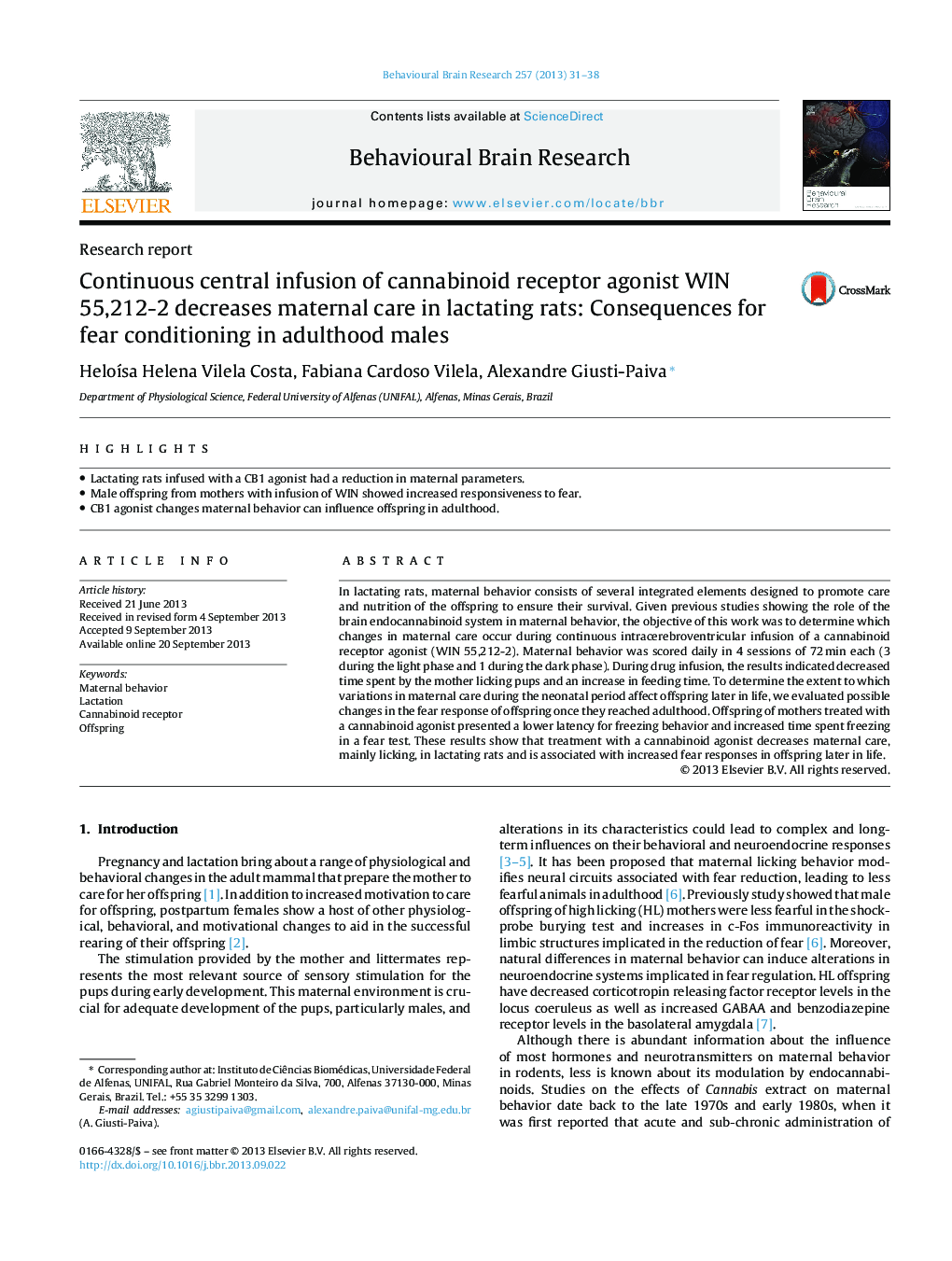| Article ID | Journal | Published Year | Pages | File Type |
|---|---|---|---|---|
| 6258476 | Behavioural Brain Research | 2013 | 8 Pages |
â¢Lactating rats infused with a CB1 agonist had a reduction in maternal parameters.â¢Male offspring from mothers with infusion of WIN showed increased responsiveness to fear.â¢CB1 agonist changes maternal behavior can influence offspring in adulthood.
In lactating rats, maternal behavior consists of several integrated elements designed to promote care and nutrition of the offspring to ensure their survival. Given previous studies showing the role of the brain endocannabinoid system in maternal behavior, the objective of this work was to determine which changes in maternal care occur during continuous intracerebroventricular infusion of a cannabinoid receptor agonist (WIN 55,212-2). Maternal behavior was scored daily in 4 sessions of 72Â min each (3 during the light phase and 1 during the dark phase). During drug infusion, the results indicated decreased time spent by the mother licking pups and an increase in feeding time. To determine the extent to which variations in maternal care during the neonatal period affect offspring later in life, we evaluated possible changes in the fear response of offspring once they reached adulthood. Offspring of mothers treated with a cannabinoid agonist presented a lower latency for freezing behavior and increased time spent freezing in a fear test. These results show that treatment with a cannabinoid agonist decreases maternal care, mainly licking, in lactating rats and is associated with increased fear responses in offspring later in life.
